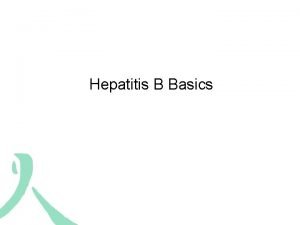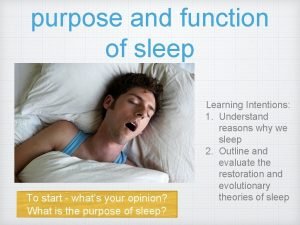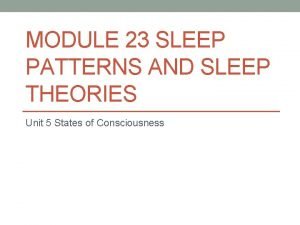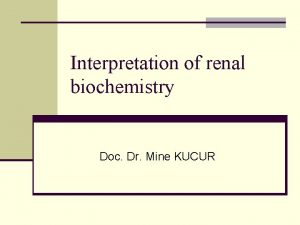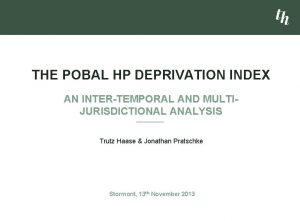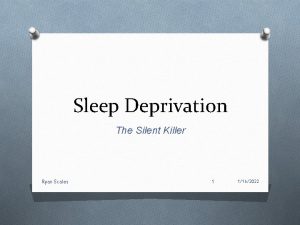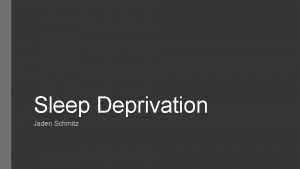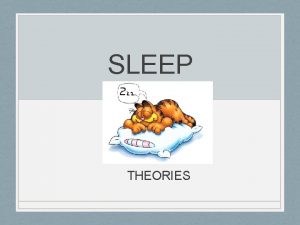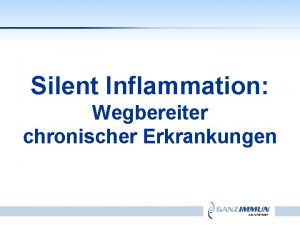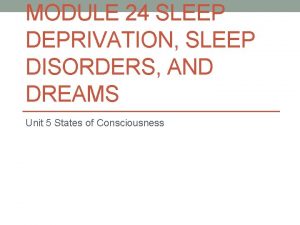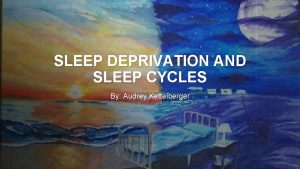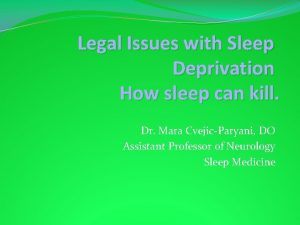Sleep Deprivation The Other Silent Killer Sleep Deprivation
















- Slides: 16

Sleep Deprivation The Other Silent Killer

Sleep Deprivation With many Emergency Service organizations opting for longer work schedules, what are the effects on the body? What about working another job on the off days?

Sleep Deprivation Enabling Objectives The student will be able to identify the symptoms of sleep deprivation and fatigue The student will become familiar with possible health risks The student will be aware of other increased risks to responding personnel The student will be aware of risks and liabilities to the organization The student will be able to identify prevention and mitigation strategies

What’s the Big Deal? 7 to 8 hours of uninterrupted sleep is required by the body (average) 2015 study found 50% of EMS workers suffered fatigue Average shift in Fire and EMS is 24 hours Most FF’s and EMS have one full-time and at least one additional job High run stations receive far less than the recommended sleep Providers have alarming rates of illness, depression, PTSD and suicide

Health Implications Cognitive Impairment Researchers found that sleep-deprived firefighters are more likely to make impulsive decisions Wakefulness for over 18 hours = BAC of 0. 05% Wakefulness for 24 hours = 0. 096% (legally DWI) Decreased reaction speed Reduced short-term and long-term memory Take greater risks

Health Implications Cognitive Impairment Military studies found pilot errors doubled after the loss of a night’s sleep Pilots claimed depression and confusion Drowsy driving 100, 000 Going crashes a year home after a long shift doubles chances of crash

Health Implications Cognitive Impairment Adequate sleep needed for the heart and vessels to repair themselves On-going sleep-deprivation decreases repair rate

Health Implications Cancer World Health Organization has classified shift work as a probable carcinogen Shift work thought to disrupt the circadian rhythm and associated melatonin production Firefighter cancer rate 300% higher than general population Sleep deprivation thought to exacerbate the problem

Health Implications Alzheimer’s Disease Amyloid-beta is a protein associated with Alzheimers Long periods of being awake leads to increase of Amyloidbeta

Health Implications Immune System Sleep helps regulate hormones that control hunger/eating Weight gain May result in: 70% of EMS responders claimed obesity Obstructive Sleep Apnea Diabetes Metabolic Higher Syndrome Blood Pressure Elevated levels of cortisol

Other Implications Liability for misdiagnosis or misreading emergency scene Fatigue Fine is the leading cause of medical errors in EMS motor function decreases Compassion 2. 5 and empathy reduced times more likely to commit an adverse event such as Protocol deviation Dropping a patient Medication errors

Other Implications Company liability for vehicular accidents personal injury workman’s comp claims Almost 200% more likely to be injured 350% more likely to be involved in a safety-compromising behavior Possible injuries to fellow workers, patients and victims Loss of agency productivity due to medical and/or mental conditions Increased costs to backfill shifts, insurance premiums, etc.

Sleep Deprivation Solutions

Develop educational programs for employees Develop policies governing maximum work periods Keep dorms and bedrooms Free of electronic devices Free of TV’s Dark and quiet No sleep in recliners Allow employees to nap Maximize off duty time Use of moderate amounts of caffeine Call in crews for heavier-than-normal call volume or long cals Exercise

So Why Don’t We Fix The Problems? Higher costs Additional staffing Additional overhead costs Additional equipment Some jurisdictions may not be able to sustain costs Ever-increasing Shortage call volume of trained personnel Insufficient departmental budgets

Sleep deprivation is a current emergency services problem that must be managed if we are to protect the health and safety of our personnel. Sleep deprived providers are unsafe to themselves and others and may be setting the stage for future health issues.
 Hepatitis b
Hepatitis b Why serial killers kill
Why serial killers kill Nothing is silent nothing is not silent
Nothing is silent nothing is not silent Module 23 sleep patterns and sleep theories
Module 23 sleep patterns and sleep theories Sidney compares sleep with
Sidney compares sleep with Module 23 sleep patterns and sleep theories
Module 23 sleep patterns and sleep theories Adults spend about ______% of their sleep in rem sleep.
Adults spend about ______% of their sleep in rem sleep. Module 16 sleep patterns and sleep theories
Module 16 sleep patterns and sleep theories Deprivation of liberty order
Deprivation of liberty order What is language deprivation
What is language deprivation Deprivation of attachment
Deprivation of attachment Water deprivation test
Water deprivation test Pobalin 25
Pobalin 25 Matching law formula
Matching law formula Define cultural deprivation
Define cultural deprivation Pobal deprivation index
Pobal deprivation index Vacation deprivation
Vacation deprivation
